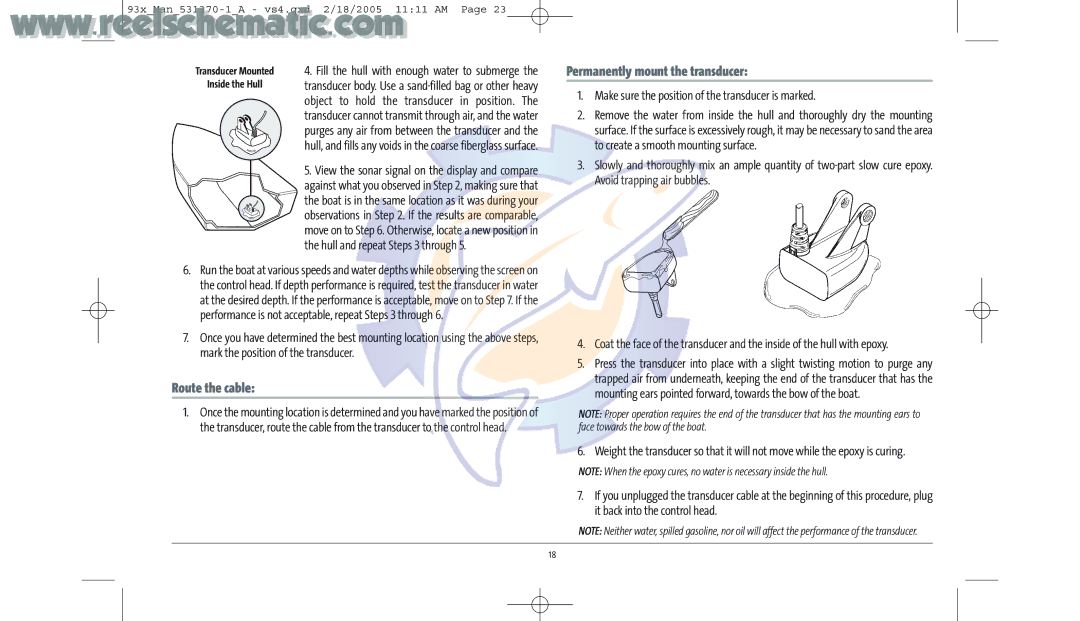
www..reelsche93x Man
Transducer Mounted
Inside the Hull
4.Fill the hull with enough water to submerge the transducer body. Use a
5.View the sonar signal on the display and compare against what you observed in Step 2, making sure that the boat is in the same location as it was during your observations in Step 2. If the results are comparable, move on to Step 6. Otherwise, locate a new position in the hull and repeat Steps 3 through 5.
Permanently mount the transducer:
1.Make sure the position of the transducer is marked.
2.Remove the water from inside the hull and thoroughly dry the mounting surface. If the surface is excessively rough, it may be necessary to sand the area to create a smooth mounting surface.
3.Slowly and thoroughly mix an ample quantity of
6.Run the boat at various speeds and water depths while observing the screen on the control head. If depth performance is required, test the transducer in water at the desired depth. If the performance is acceptable, move on to Step 7. If the performance is not acceptable, repeat Steps 3 through 6.
7.Once you have determined the best mounting location using the above steps, mark the position of the transducer.
Route the cable:
1.Once the mounting location is determined and you have marked the position of the transducer, route the cable from the transducer to the control head.
4.Coat the face of the transducer and the inside of the hull with epoxy.
5.Press the transducer into place with a slight twisting motion to purge any trapped air from underneath, keeping the end of the transducer that has the mounting ears pointed forward, towards the bow of the boat.
NOTE: Proper operation requires the end of the transducer that has the mounting ears to face towards the bow of the boat.
6. Weight the transducer so that it will not move while the epoxy is curing.
NOTE: When the epoxy cures, no water is necessary inside the hull.
7.If you unplugged the transducer cable at the beginning of this procedure, plug it back into the control head.
NOTE: Neither water, spilled gasoline, nor oil will affect the performance of the transducer.
18
